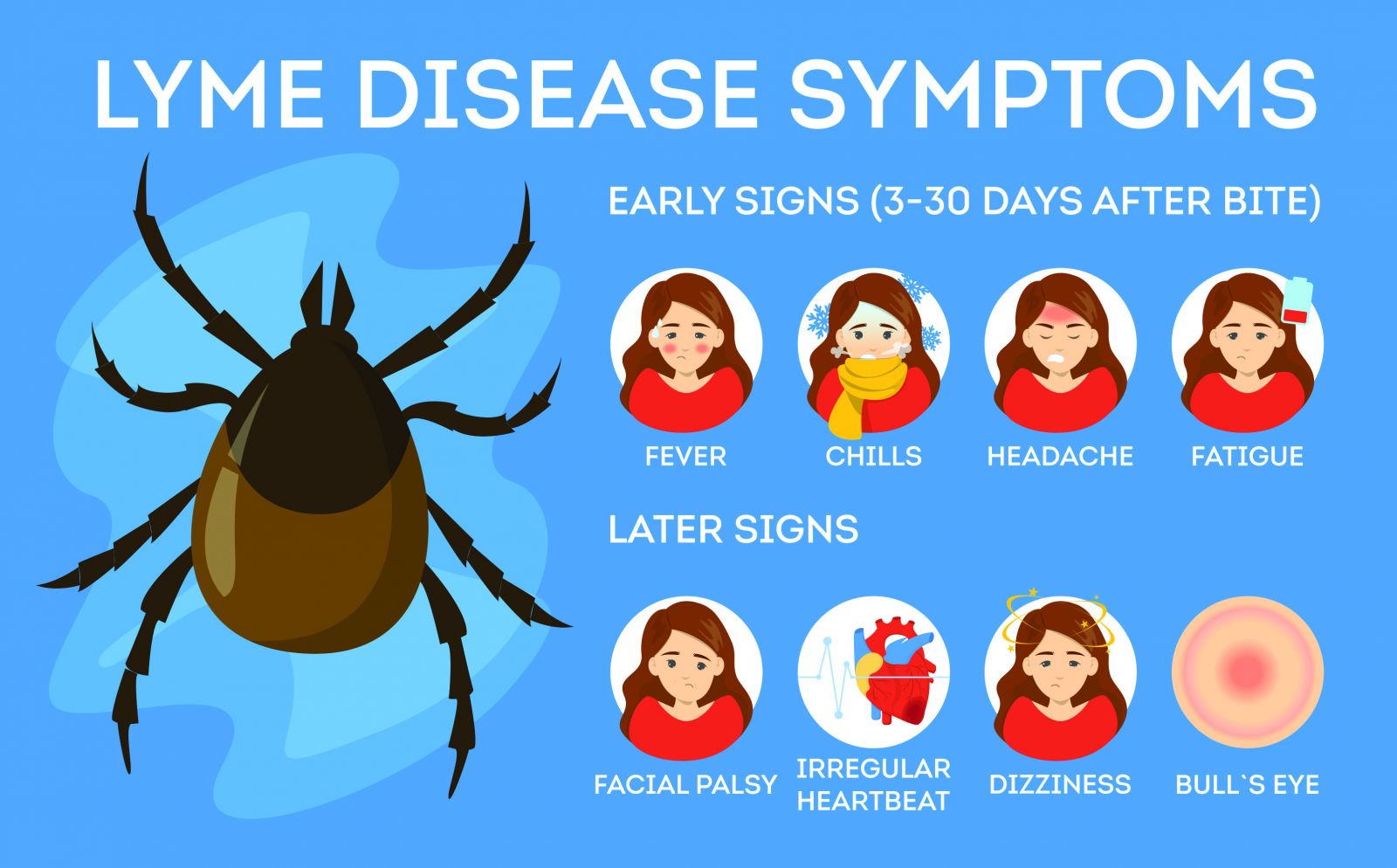Source: Lyme Disease May 25, 2020 5 years, 7 months, 1 week, 6 days, 7 hours, 44 minutes ago
Lyme Disease: The Canadian Medical Association is warning doctors and the general public about unusual clinical manifestations of Lyme Disease and has published three articles in its journal CMAJ (
Canadian Medical Association Journal) to better illustrate this new emerging symptoms and clinical manifestations.

Some of these diverse symptoms include heart abnormalities, atypical skin lesions and also severe neurological disorders.
As summer is fast approaching and more individuals spend time outdoors in the US and Canada, they should be aware the black legged tick.
Unknown to many, Lyme carditis is a condition caused by Lyme disease in which the heart is affected and serious heart rhythm abnormalities manifest itself in certain infected individuals. Clinicians should be aware of the possibility of Lyme carditis in people presenting with atrioventricular heart block, especially in areas where Lyme disease is endemic. Patients may have had a rash. Early treatment with antibiotics is recommended to avoid complications, even before a diagnosis is confirmed.
In one reported fatal case of Lyme disease in a previously healthy 37-year-old man, physicians had the challenge of diagnosing Lyme disease in the absence of classic symptoms.
https://www.cmaj.ca/content/192/21/E574
The male patient originally presented to his physician with flu-like symptoms, including fever, sore throat, nasal congestion and migratory joint pain. Several weeks earlier, he had been in contact with ticks but didn't recall removing one.
His doctor suspected a viral infection, and the patient's symptoms resolved.
Weeks later, he developed heart palpitations, shortness of breath and chest discomfort for which he was sent to the emergency department. Lyme disease was suspected as electrocardiography (ECG) showed complete heart block. He was admitted to hospital and started on treatment for Lyme carditis, but his condition worsened quickly. Clinicians were unable to reverse the course of illness and he died. Serology results confirmed Lyme disease, and an autopsy showed signs of Lyme carditis.
Dr Milena Semproni, an Infectious Diseases fellow at the University of Manitoba and Winnipeg Regional Health Authority wrote, "The diagnosis of Lyme carditis is based on clinical suspicion and serology consistent with acute Lyme disease. Unfortunately, diagnosis can be delayed while serology is being processed, and clinical suspicion should guide empiric treatment. Given that the early diagnosis is clinical, cases may be overlooked by clinicians, especially as Lyme disease moves into new geographic areas."
We Desperately Need Your Help. Please Help To Sustain This Website And All Our Initiatives To Propel Research By Donating. https://www.thailandmedical.news/p/sponsorship
It is recommended that In suspected cases of Lyme carditi
s, patients should have an urgent ECG performed and be started on antibiotics without waiting for serologic confirmation.
The medical researchers note that serious heart rhythm abnormalities and sudden cardiac death can occur in a small group of patients, although it is uncommon. In the 10 other North American cases of sudden cardiac death attributed to Lyme carditis described in the literature, 8 patients were male, and the cases occurred between June and November, when ticks are active.
In another patient, clinical manifestations of a large red rash (erythema migrans), aches and chills who were present along with heart palpitations. Fortunately the patient was found to have Lyme carditis and was treated with an antibiotic and recovered.
https://www.cmaj.ca/content/192/21/E584
Dr Adrian Baranchuk, Department of Medicine, Queen's University, Kingston, wrote, "Given that most conduction abnormalities caused by Lyme carditis resolve with appropriate antibiotic therapy, recognition of atypical dermatologic presentations in the context of Lyme carditis prevents unnecessary permanent pacemaker implantation in these young and otherwise healthy individuals."
Although the bull's eye rash is usually considered a classic feature of Lyme disease, in some cases, the rash doesn't follow the usual pattern.
In a third case, a 4-year-old boy was presented to hospital with fever, vomiting, malaise, ataxia and aphasia. The article describes the differential diagnosis and investigations, which eventually led to a diagnosis of neuroborreliosis caused by Lyme disease. The boy recovered fully with antibiotic treatment.
https://www.cmaj.ca/content/192/21/E578
Physicians are advised to read these three reports to understand the various non-typical clinical symptoms of Lyme disease to help in better diagnosis.
For more on
Lyme Disease, keep on logging to Thailand Medical News.
We Desperately Need Your Help. Please Help To Sustain This Website And All Our Initiatives To Propel Research By Donating. https://www.thailandmedical.news/p/sponsorship
